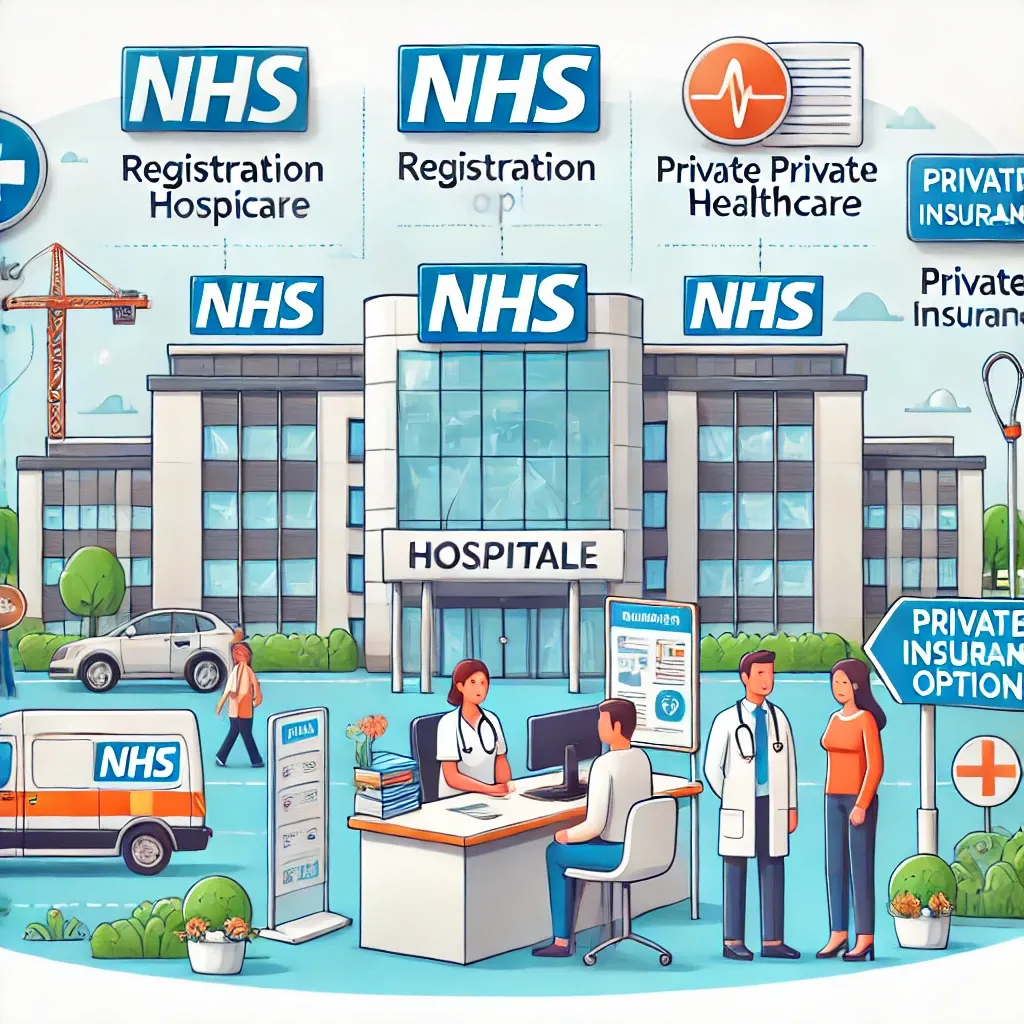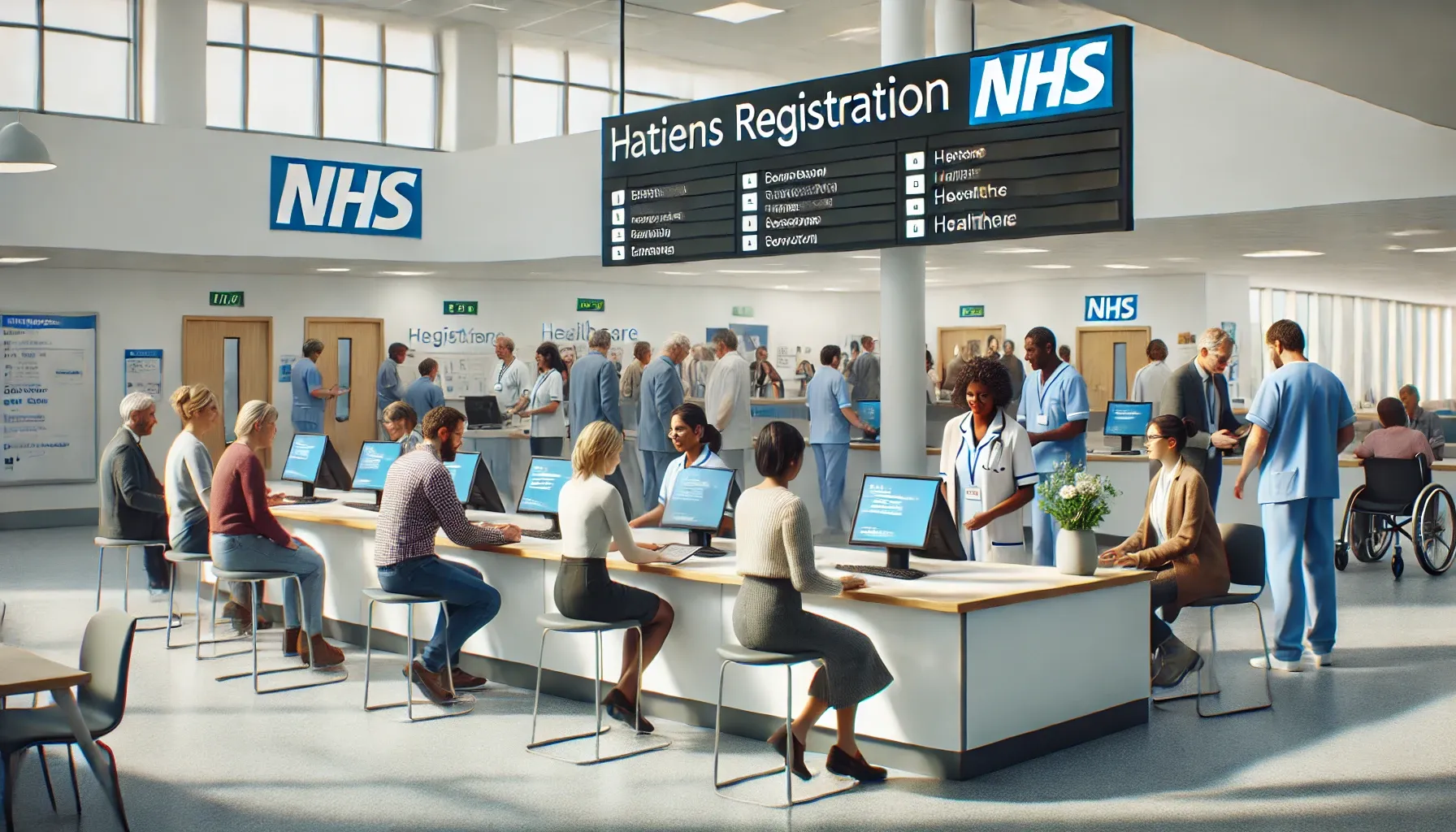How can foreigners access the NHS in the UK?

- How has the National Health Service improved the health of the population in the United Kingdom?
- How do foreigners access health services in the UK?
- How is the system of medical institutions organized in the United Kingdom?
Introduction to the Healthcare System in the United Kingdom
Today, the National Health Service (NHS) operates in the United Kingdom, which is the result of extensive reforms that began after the end of World War II. After the war, the country faced serious health challenges, and the demand for affordable medical services reached record levels.
The NHS was founded in 1948 with the main goal of providing citizens with free medical care and significantly improving the nation's health. Over the years, the organization has achieved significant successes: among other things, the infant mortality rate has decreased from 36 to 4 per 1,000, and the average life expectancy in the UK has increased by 13 years.
The structure of the NHS in different regions
It is worth noting that the United Kingdom is divided into four independent regions: England, Scotland, Wales, and Northern Ireland. Each of these regions has its own version of the NHS, which differs from the others, introduced in 2013 as a result of healthcare system reforms.
These changes led to the creation of separate and independent services that are accountable to the government authorities of each country. As a result, each region now has its own rules and conditions for providing medical services.
Advantages of the NHS
One of the advantages of the NHS is its accessibility:
- All residents of the UKcan receive basic medical services completely free of charge.
- Exceptions include certain services, such as dental procedures or aesthetic medicine treatments, which need to be paid for.
It should be noted that previously citizens of European Union countries and some other regions had the right to access NHS services without payment thanks to the European Health Insurance Card (EHIC). However, changes in the political situation and the UK's exit from the EU have abolished this practice.
Changes in visa policy
In recent years, additional fees have also been introduced for individuals obtaining certain categories of visas. This has also affected the accessibility of medical services. Now, holders of these visas can use the NHS system without any payment, which in turn attracts foreign citizens interested in quality healthcare.
Medical facilities in the UK
In the UK, there are many medical institutions, both in the public and private sectors:
- hospitals
- specialized clinics
- pharmacies where the necessary medications are available
Almost all pharmacies offer a wide range of medicines and additional services such as consultations with pharmacists. This ensures a high level of access to medicines, which plays an important role in maintaining the health of the population.
Conclusion
Thus, the healthcare system in the United Kingdom has undergone numerous changes since its inception; however, the fundamental principle of providing medical services to all citizens has remained unchanged. The NHS continues to be an integral part of the country's social structure, caring for the health of the population and ensuring access to quality medical care.
Introduction
Regardless of the situation, foreigners have the opportunity to receive emergency medical care and family planning services without the need for payment. However, access to other types of medical services requires having a health insurance policy.
Immigration fees
Since 2015, new rules have been introduced requiring foreigners who have been in the UK for more than six months to pay an immigration health surcharge, the amount of which starts from150 to 200 British pounds. If the alien refuses to pay this fee and does not have private health insurance, he or she will have to pay the150%from the standard cost of medical services according to the rates set by the NHS.
Private health insurance
For UK citizens, there are some high-income earners who sometimes choose to take out private health insurance rather than public services. In some cases, employers offer commercial health insurance to their employees.
- According to statistics, only13%Britons are turning to private insurance policies.
- Most residents of the country are not interested in private medicine, as such policies often offer a less comprehensive range of services compared to the NHS.
Work in the NHS system
Today, the NHS is one of the leading employers in the United Kingdom, and working in this system is considered very prestigious. Salaries in the NHS, especially for doctors, are quite high compared to other countries.
- An experienced general practitioner can earn up to£120,000 a year.
- Dentists can earn even more impressive amounts.
The process of registering with the NHS
Now let's look at the process of registering a foreigner in the NHS system. After arriving in the UK, a foreigner is required to register at the nearest clinic, which is calledsurgeryThis process can take anywhere from a few days to two weeks, so it should be started immediately upon arrival to avoid a situation where medical intervention is needed but help is unavailable.
Temporary registration is also provided, which is available for foreigners staying in the country for24 hours to three monthsHowever, it is important to note that not all clinics are ready to accept new patients.
Dental services
To use dental services, it is also necessary to register withdental surgerySince these services are paid. At the same time, there are exceptions for children, people receiving certain social benefits, pregnant women, and mothers with children under one year old.
Documents for registration
To register for surgery, a foreigner must fill out a special form.gms1and provide proof of identity, which can be a passport, and proof of residence in the UK, such as a utility bill. Once you have successfully registered, you will be issued with a uniqueNHS numberwhich will serve as an equivalent to a medical policy and will be used to access medical services.

Medical facilities in the UK
In British medical facilities known as surgeries, one or two general practitioners typically work alongside a secretary. These centers conduct initial patient examinations, and if necessary, patients are referred to specialized medical professionals.
9 October 2024
9 October 2024
29 September 2025
29 January 2025
General practitioners have the authority to prescribe medications, while referrals to specialists are made through a letter, which usually reaches the patient within two weeks after their visit. According to current legislation, a patient referred by a therapist must be accepted into a specialized facility within 18 weeks.
Private health insurance
When it comes to private health insurance, both British citizens and foreigners often take out insurance policies. This significantly speeds up access to medical services, especially in cases where emergency assistance is needed due to illness or injury.
Policies can be taken out for an individual or for the whole family. The calculation of the insurance premium is based on various factors, such as:
- lifestyle
- age
- the presence of chronic diseases
- list of necessary medical services
Most insurance programs involve a deductible, which means that the insured person will partially cover their medical expenses in the event of a claim.
Social packages and policies for individual services
Many companies in the UK offer their employees private health insurance policies as part of their benefits packages. There is also the option to take out a policy for a specific medical service, which can be relevant if a patient needs treatment or surgery that has a long waiting list in the NHS.
It is important to understand that the cost of obtaining such a policy varies depending on:
- type of provided treatment
- ages
- health conditions
- lifestyle of an insured person
For example, for a 35-year-old man without bad habits, the contribution amount can range from £688 to £935 per year. Meanwhile, for a 70-year-old man without bad habits, the cost of insurance varies from £2238 to £2834 per year. In the absence of insurance, the cost of a single consultation with a private doctor will be at least £100.
Hospitals and access to treatment
When it comes to hospitals in the UK, a referral from a general practitioner is required to receive treatment in most cases, except in emergencies. There are two types of hospitals in the country:
- free NHS hospitals
- paid private clinics that are managed by private or charitable foundations
Most general medical facilities offer emergency care for injuries and urgent conditions, as well as surgery, elderly care and childbirth services. These facilities ensure that health care services are accessible to people from different walks of life, which positively affects the health of citizens and provides a variety of treatment options.
Conclusion
The healthcare system of the United Kingdom, represented by the NHS, is an outstanding contender for the role of the primary source of medical care for all residents of the country. Established to ensure the accessibility of medical services in the post-war era, it has achieved significant success in public health. The low child mortality rate and the increase in average life expectancy indicate that the NHS is successfully meeting its objectives.
However, despite its undeniable advantages, the system faces certain challenges, especially in light of the changes brought about by Brexit. Restrictions on healthcare for EU citizens and the need to pay an immigration surcharge require foreign nationals to carefully plan their stay in the UK. Nevertheless, the availability of emergency medical care for all newcomers remains an important aspect, highlighting the humanitarian approach of the British healthcare system.
Registration of foreigners in the NHS
As far as registering foreigners with the NHS is concerned, it is an affordable process, but requires care and preparedness. Difficulties may arise at the stage of finding a suitable clinic and carefully filling out the documents, but the importance of health insurance in this system can hardly be overestimated. It becomes not only protection in case of illness, but also a guarantee that a person always has access to the necessary help in any critical situation.
The main advantages of the NHS system:
- Free medical care for residents.
- Access to emergency assistance for foreigners.
- Professional and highly paid specialists.
- Successfully overcoming public health challenges.
Overall, the NHS system remains one of the largest and most respected organizations in the UK. Its significance is hard to overstate. For foreigners seeking better medical services, it is important to understand its nuances and rules. Despite numerous innovations and changes, the NHS continues to be a primary beacon of hope for millions, emphasizing the accessibility and quality of healthcare services for all who need them.
Comment
Popular Posts
9 October 2024
9942
9 October 2024
1487
29 September 2025
393
29 January 2025
1530
Popular Offers

Subscribe to the newsletter from Hatamatata.com!
Subscribe to the newsletter from Hatamatata.com!
I agree to the processing of personal data and confidentiality rules of Hatamatata


